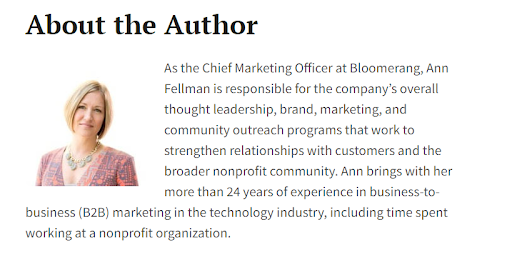Master the Art of Guest Posting for Powerful Link Building
A lot of people claim guest blogging does not have any potential anymore, and boy, are they wrong. You will come across countless versions of said statement on different forums and blogs. On the contrary, there is plenty of evidence suggesting that it can actually be used as a means of an effective link-building strategy.
The problem is that individuals, and even businesses for that matter, do not know how to go about using effective guest blogging link acquisition techniques. If you, too, are facing such a dilemma, then you will find everything you need to know about it right here.
What are the benefits of a Guest Post Campaign?
Guest post campaigns have plenty of benefits. In 2014, Matt Cutts, Google’s former Head of Web Spam, said, “Okay, I’m calling it: if you’re using guest blogging as a way to gain links in 2014, you should probably stop.”
He couldn’t be more wrong. Today, Guest posting is still high and brings benefits. Here are a couple of benefits that might just push you to guest posting.
Backlinks
First and foremost, guest posts provide a gateway to building high-quality backlinks from authoritative websites within your niche. These backlinks not only improve your search engine rankings but also drive targeted referral traffic to your website.
Read on to find out how you can make your guest posts more valuable by following Google’s latest guidelines.
Traffic
Guest posting allows you to tap into the existing audience of the host blog, exposing your brand to a wider range of potential customers and industry influencers.
This is why, later in the blog, we will tell you how you can pick a website that can bring you this benefit successfully.
According to Optin monster, 62.96% of readers perceive blogs with multiple authors to be more credible.
Hence, guest posting allows you to establish authority in your niche. According to the Google Helpful Content Update of 2022, authority is an important factor in content. This helps it rank better, and Google further enlists you as an authoritative source.
Throughout this guide, we will share how you can make your guest posting a breeze so you can do it right and utilize every ounce of benefits that it can bring.
Whether you’re a seasoned marketer looking to optimize your link-building strategies or a beginner eager to explore new avenues for online growth, this blog post will equip you with the knowledge and tools to kick-start your guest post campaign and maximize its impact.
Things to Keep in Mind
Before you design a guest blogging campaign, there are a couple of things you will need to take into consideration, which are:
Adopting the Right Approach
The first rule of guest posting for quality links is that you should not guest post for quality links.
You may be confused as to what this means, but guest blogging is never actually just about the links. Your primary goal should and always will be to gain a following and build authority. Any backlinks you end up scoring serve as a bonus.
This mindset is an important one to adopt. If you approach guest blogging only to earn a link or two, then you will end up with low-quality sites. Additionally, you may even have to compromise on the quality of your content, which will negatively affect your strategy.
Before you start working on your guest blogging campaign, remind yourself that it is a means by which you can build authority and influence, and not just for benefits in terms of SEO.
Find the niche
If you are an SEO service provider and post on a food blog… that is it! That’s the statement! You see how bizarre it will be! Why would the audience be interested in you? Moreover, why would a backlink make your backlink profile rich? Furthermore, why would Google consider you authoritative?
The simple answer is that you will have wasted your time, energy, and possibly resources. So here’s the thing: find your niche.
It is ideal to find a niche closest to yours. This way, your guest post can reach a wider audience. Moreover, it will help Google read your content as a user-intent piece on a website. This will allow it to rank better and gain a couple of eyeballs.
Get your byline
If you guest post with the byline guest poster, it almost ruins the purpose. Imagine a person new in a city, and you ask them to reach your house without giving them an address or a map location! They will get lost, and eventually, you won’t get the gifts they got you!
When you guest post, make sure you have a short bio where you tell about your website. There are plenty of things you can write. However, the best is short and sweet, covering everything. Including the company you are writing for. Here is a good example from wiredimpact.com
The CMO of Bloomerang posted on wired impact as a guest. Her company gets the benefit of traffic just because she mentioned it and people will be visiting it.
Create a piece that cannot be ignored.
Yes, in this loud world, you have to make yourself heard! When it comes to guest posting, while websites accept them, it may not be possible for your piece to be published.
Unless…
Make a piece that cannot be ignored. Before diving into that importance, let us rewind a little to the Google Helpful content update!
Remember how a good piece used to be about keywords only? Now it’s not! Google’s changing algorithm requires writing pieces that follow the EEAT standards!
Expertise, Experience, Authority, and Trust!
A written piece – any piece should have all four to qualify to be a good piece of content. Add proper research, and explain why you are an authority and an expert to talk about it. Add media and build trust with the user. All these help the content become user intent and satisfy the reader’s curiosity. Check out the video below on our helpful content update to understand it more.
What about keywords?
Well, they are not obsolete yet! However, they are more refined than ever! Remember, keyword stuffing or inorganically adding keywords can be read as spam by Google. This reduces the chances of surfacing on the SERPs, and your guest post can go down!
Now that we know all this, you might have gotten a better idea of what quality content refers to now. No website is going to accept a guest post that does not meet Google’s criteria. Why would someone risk their credibility because of a guest post?
Don’t forget your audience.
Reader intent is important, but also do not forget your audience. By your audience, I don’t mean your audience; I mean the audience of the website where you are guest posting.
You might have the same niche, but an established blog has its own audience who likes things a certain way. Try to determine their audience with the tone of the blogs they have set and work with that.
We know you are smart and have your style, but it is for the reader, and you need to respect that!
End on a good note
When we say end on a good note, we mean on an excellent note! This means post-publishing if you have comments, engaging with them, replying to them, and not forgetting to criticize positively.
How to Find Guest Blogging Opportunities
To begin your guest blogging campaign, you will need a list of potential guest blogging targets. The larger the list, the better it will be for you.
The good news is there are a couple of ways you can make this possible, out of which here are a few of the easy ones:
Use Google Search
Many blogs maintain pages that are open to new guest posts. These are easy pickings since there are clear guidelines on what kind of content they will accept.
To find these pages, use variations of operators like:
- “Keyword” + “Write for Us”
- “Keyword” + “Blogging Guidelines”
- “Keyword” + “Guest Post”
- “Keyword” + “Contribute”
This formula will work for just about any niche you can think of. But there is a problem with this method – it will mostly offer low-quality sites. It may not always be the case, but you have to understand that top authority sites are not going to be explicit about accepting guest posts since they have a ton of people wanting to write for them as it is.
So if you want to stick to the big boys’ league, then you will need to opt for the following searches instead:
- “Keyword” + “Guest Column”
- “Keyword” + “Contributing Author”
- “Keyword” + “Contributing Writer”
- “Keyword” + “This is a Guest Post by”
By taking this route, you will get results for blogs that have accepted a guest post by at least one author. If they have accepted guest posts before, there is a chance they might do so again – in which case, you should contact them despite the fact they do not have a page encouraging people to write for them.
Follow an Influencer’s Footsteps
Another great way to find potential opportunities for guest blogging is by following an influencer’s footsteps. So all you will need to do is to:
- Find top influencers that publish guest posts often
- Target any and all sites they target
If you have been working in a niche, you will already have an idea about the top influencers of that niche. What you need to do is to use Google Search to find all of their guest posts.
Look for your Competitor’s Backlinks
This is by far the easiest way, as it involves tracking your competitor’s backlinks. Find the sites they have guest blogged on, and voila, you will be good to go!
Do keep in mind, though, that this method is better suited for small or medium-sized competitors. If you go through backlinks from a site like Hubspot, you will have far too many links to analyze.
How to Filter Guest Blogging Opportunities
Upon following the steps mentioned above, you should have a considerable list of guest blogging opportunities. But not every opportunity is going to be important. Essentially, you will have to separate low-quality sites from good ones. This can be done by going through the list and figuring out the following:
Content Relevance: Is the site post content relevant to the niche you are targeting? If so, what is the level of engagement for each post?
Profile Location: Does the site make it easier for authors to have a clear profile? Or does it hide it at the end of the article? Do authors get a bio and a picture?
Domain Metrics: This refers to domain-level metrics like backlinks, referring domains, domain ratings, etc.
Engagement: How many shares can be expected from a post? Do users comment a lot? An audience that is highly engaged is all that matters.
Guest Authors: What kind of authors does the site entertain? Does it cater to authors from spammy or authority sites?
Once you have answers to these questions, divide your list into four categories:
Authority Sites: Sites that are widely followed and read in the industry you are working in. Most of these sites will have a 50+ DA.
Mid-Tier: These are good but do not have great blogs. They are mostly operated by individual bloggers. Their DA can be anywhere between 50 and 60.
Low-Tier: These average blogs have little to offer and may have a 40+ DA.
Rejected: These blogs mostly attract spam. Avoid these blogs like the plague.
You should now have a better idea of acquiring guest blogging opportunities for links. Of course, there is no sure-shot way of going about making this possible, but at least now you have something to work with, especially if you are starting out.
Initially, things will not be easy, and you will need to go above and beyond the call of duty to get your blog on a reputable site through a link-building service. But as long as you take one step at a time and focus on quality rather than quantity, you will get the results you want in no time.











